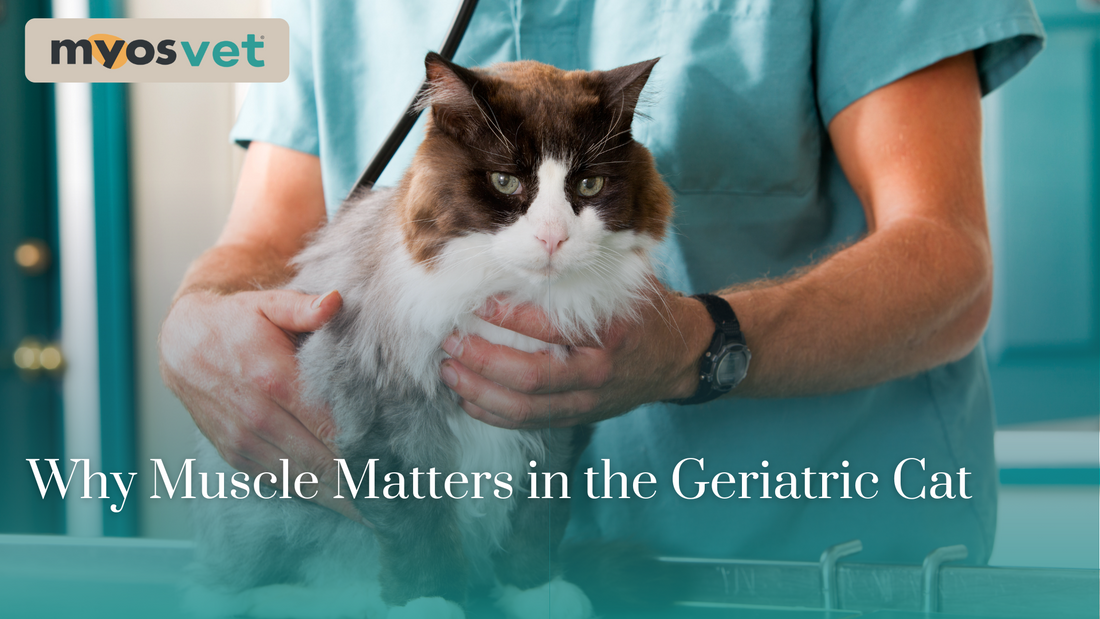
Why Muscle Matters in the Geriatric Cat
Share
Muscle isn’t just about movement—it plays a central role in metabolic health, immune function, and recovery from illness or surgery. As lean muscle declines, cats may experience:
- Decreased metabolic rate and appetite
- Slower healing
- Higher vulnerability to chronic disease progression
Incorporating muscle health into routine wellness exams gives veterinary teams a proactive approach to extending both lifespan and quality of life for aging cats.
A Nutritional Tool to Support Feline Muscle Health
Fortetropin®, the active ingredient in MYOS Canine and Equine Muscle Formulas, has also shown promise in supporting muscle growth and reducing muscle atrophy in animals. While much of the research to date has focused on dogs, Fortetropin is made from a natural, food-derived ingredient (fertilized egg yolk powder) and is appropriate for feline use with veterinary oversight.
In a clinical setting, Fortetropin has been shown to:
- Support lean muscle growth
- Reduce myostatin, a protein that inhibits muscle development
- Improve recovery after periods of disuse or inactivity
Although more feline-specific studies are warranted, anecdotal reports from veterinary professionals using Fortetropin in aging cats are encouraging—particularly when combined with physical therapy and adjusted nutrition plans.
Integrating Muscle Support into Senior Cat Care
Veterinarians can begin by incorporating muscle condition scoring (MCS) into every senior wellness exam. If signs of muscle loss are present, a comprehensive plan might include:
- Diet modifications to increase high-quality protein
- Gentle, low-impact activity recommendations
- Nutritional supplementation with muscle-supporting products like Fortetropin
- Follow-up assessments to monitor muscle tone and strength
Educating cat owners about the signs of muscle loss and emphasizing its impact can also improve compliance and drive earlier intervention.
Final Thoughts
In the field of veterinary medicine, geriatric care is evolving beyond just managing age-related diseases—it’s about preserving function and vitality. Muscle health in aging cats is an essential but often overlooked aspect of that mission. By shifting our approach to include proactive muscle support, we can give our feline patients more than just longer lives—we can give them stronger, more vibrant ones.
